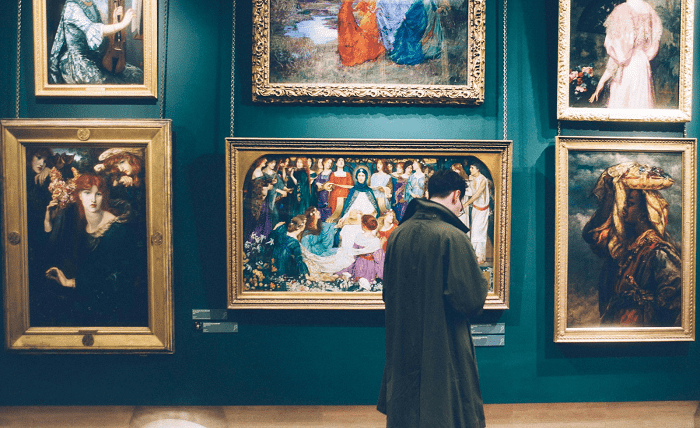Why Online Art History Courses Are Perfect for Lifelong Learners

Lifelong learning has become a cornerstone of personal growth and intellectual curiosity in today’s fast-paced world. Art history, with its rich tapestry of cultures, movements, and expressions, provides an excellent opportunity to explore humanity’s creative legacy. With the advent of accessible technology, studying art history online is emerging as a transformative way for individuals to expand their horizons, regardless of their background or career stage. Here’s why these courses are a perfect fit for lifelong learners.
1. Flexible Learning for Busy Lifestyles
One of the most significant benefits of art history courses online is the unparalleled flexibility they offer. Lifelong learners often juggle various responsibilities—work, family, or other commitments. Traditional classroom settings can be rigid and demanding, but online platforms allow participants to study on their own schedule.
Whether it’s a few hours on a quiet weekend morning or an evening session after work, these courses adapt to the learner’s availability. Moreover, online platforms often provide pre-recorded lectures, downloadable materials, and interactive tools that can be accessed anytime. This means learners can progress at their own pace without compromising on the depth of study.
2. Immersive Exploration of Art’s Global Legacy
Art history courses offer a gateway into the world’s cultural and artistic heritage. From the grandeur of Renaissance masterpieces to the avant-garde innovation of modern art, these programs open the door to a fascinating journey across time and geography.
Online platforms enhance the learning experience by using multimedia tools that bring art to life. High-resolution images and videos allow learners to explore intricate details of paintings, sculptures, and architecture. Interactive modules provide dynamic perspectives, making art history accessible to anyone with an internet connection beyond the confines of museums.
3. Affordable and Accessible for Everyone
Online art history programs are designed to democratise education. Traditional in-person programs, especially at prestigious institutions, can be costly and geographically exclusive. Online learning breaks down these barriers, offering high-quality content at a fraction of the cost.
Learners can often choose between free introductory courses or affordable paid programs, making art history accessible to everyone. This inclusivity benefits individuals from all backgrounds, including those in remote areas without access to museums or universities.
4. A Perfect Blend of Passion and Practicality
For those passionate about art but outside creative fields, online art history studies offer the perfect blend of passion and practicality. They provide an immersive exploration of art while honing transferable skills like analytical thinking, attention to detail, and cultural awareness. These abilities enhance careers in fields like marketing, education, and design. For retirees or hobbyists, they offer a rewarding way to stay mentally engaged while nurturing a love for art.
5. Guided Learning with Expert Insight
Many online art history courses are led by experts who bring years of academic research and practical experience to their teaching. These professionals guide learners through complex topics, offering valuable context and a deeper understanding of artistic movements, individual works, and cultural shifts.
In addition, learners often have access to discussion forums, live Q&A sessions, and feedback on assignments. This interactivity helps to replicate the sense of community found in traditional classrooms. Engaging with fellow students from diverse backgrounds further enriches the learning experience, offering fresh perspectives on art and its significance.
6. A Personalised Path to Learning
One of the standout features of online art history courses is their adaptability to individual goals. Learners can choose programs modified to their interests—whether they wish to study the art of a specific era, explore global artistic traditions, or focus on niche topics like feminist art history or digital media in contemporary art.
This personalised approach ensures that lifelong learners can carve out their own educational journey, creating a meaningful connection with the subject. Additionally, many platforms provide certificates of completion, adding a sense of accomplishment and recognition to the experience.
Expanding Creativity and Understanding
Engaging with art history nurtures creativity and critical thinking, which are essential skills in an increasingly visual and interconnected world. Through online courses, lifelong learners gain the tools to analyse visual culture and interpret the stories behind iconic works of art. These insights enrich everyday life, whether it’s appreciating the architecture of a city or understanding the cultural influences behind a film or advertisement.
Moreover, art history offers a profound understanding of humanity’s shared experiences, struggles, and triumphs. It fosters empathy and cultural sensitivity by revealing how art reflects societal values, traditions, and historical contexts. This broader perspective encourages learners to see the world through a more inclusive and informed lens.
Art history courses online have revolutionised how lifelong learners engage with the past, present, and future of artistic expression. By offering flexibility, affordability, and personalised pathways, these programs empower individuals to explore their passions, develop new skills, and enrich their lives. Whether driven by a deep love of art or a desire to gain fresh perspectives, lifelong learners will find these courses an invaluable resource. They embody the spirit of curiosity and discovery, making art history accessible and relevant to everyone, everywhere.




